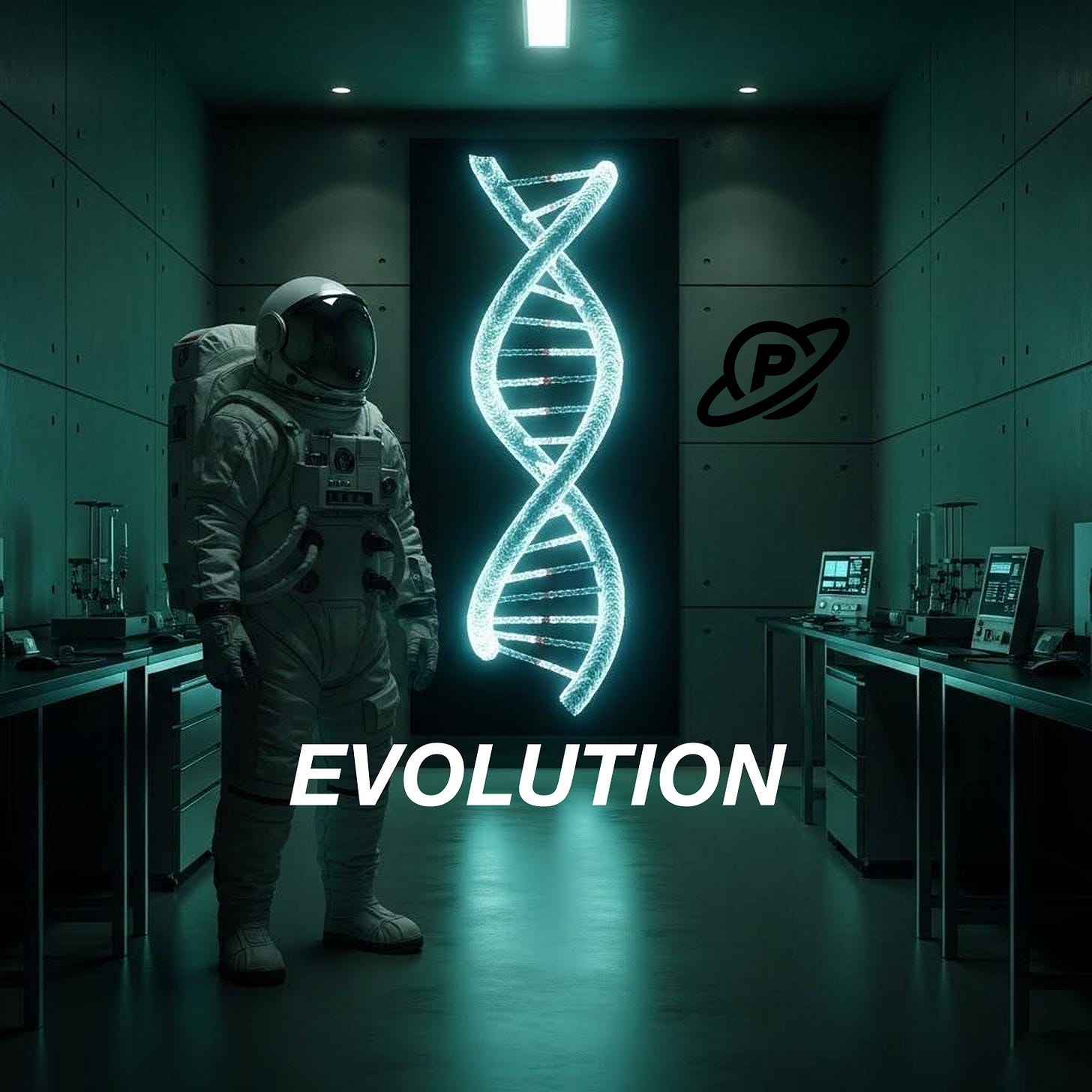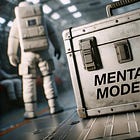Evolution - Mental Model: AI-voiding Extinction
Species adapt, or they go extinct.
On 27 December 1831, HMS Beagle sailed from Plymouth to South America, with young Charles Darwin aboard, who was a great perspective taker. Darwin would later formulate the theory of evolution — an important set of ideas for understanding change.
Evolution isn’t just about biology. Concepts that shape it: incremental changes, natural selection, and repurposing can be used to understand tech, business, and how we can shape our careers.
Now, with fast-changing technologies, evolution can help as a mental model for survival.
Let’s explore key concepts:
Natural Selection & Adaptation
Repurposing
Natural Selection & Adaptation
Natural selection, as a verb, has nothing to do with the active act of selection.
From a biological perspective, it's about living long enough to reproduce — otherwise, all our adaptations are lost. My favourite take on natural selection is calling it "nonrandom elimination".
Business perspective
Companies that suit the clients win. Allowing small incremental changes can help them avoid extinction.
The environment plays its role too. For example, the financial crisis is a real test for adaptation, which might be compared to mass extinction, a rare event that led to the extinction of many species.
Career's perspective
If your skill set no longer creates value in that environment, you're at risk. But unlike in biology, we can adapt, as we don't need to change our genes to learn new skills.
When everyone around has already started writing their code using AI assistants, generating presentations with the help of AI or preparing meeting summaries using these tools. It's worth exploring what can give you an advantage.
Understanding the domain in which business operates, grasping some basics of finances, business terms or diving deep into the domain can help you build a competitive advantage.
We can't predict the future, but we can learn, spot new trends and adapt.
“It is not the strongest of the species that survives,
not the most intelligent that survives.
It is the one that is the most adaptable to change.”
― Charles Darwin
Repurposing
What is an amazing feature of evolution is that some structures that evolve randomly are used later to serve different purposes.
All organisms that walk on land evolved from fish. Water was the perfect environment for life to thrive — stable temperatures, UV protection, no gravity to fight against. But the first organisms that moved onto land died quickly. We needed something to carry water with us and prevent evaporation.
Keratin protein was used inside fish cells to help with its internal structure, but after countless mutations, it served as a perfect waterproof barrier that kept it wet inside. Now it's in our skin.
It was a great case of repurposing structures that were already coded in our DNA but used in different places, now found in every animal on land.
Business perspective
Amazon experienced huge seasonal demand for books, and they needed to scale their servers dramatically. But for the rest of the year, these weren't needed, so Amazon created Amazon Web Services, which is now one of the biggest cloud providers.
There are other cases of businesses that reinvented themselves, where side gigs became their main source of income. Nintendo started with selling playing cards, and Shopify started as an online shop for snowboard equipment.
Career's perspective
Finding new uses for the skills that you have broadens your perspectives. When the environment changes, you don't need to start from scratch.
Learning universal skills might help with repurposing. Knowing English or a programming language may be deprecated at some point, but your soft skills, communicating clearly with other people and ability to connect the dots, are here to stay even with AI-everywhere-future. That's my bet.
Summary
What Darwin learned during his 5-year expedition on HMS Beagle remains applicable in our lives. Our environment is changing fast, especially as technology evolves around us.
Will some jobs go extinct because of new technologies?
Yes, for sure. It happened before. Many times.
Evolution advises us to focus on adaptation.
Sometimes a small dose of fear might be important to break the inertia and try new technologies.
Thanks for reading!
— Michał
References
I enjoy watching people with passion, especially when they talk about their breakthroughs. One of those people is Hank Green, who recorded a video that we are all fish — I took a keratin example from his video: The Hardest Problem Evolution Ever Solved
Good reminder of what we currently know about AI: No One Knows Anything About AI - Cal Newport
Post Notes
Discover Weekly — Shoutouts
Articles that might help you explore new perspectives, which I’ve read recently:
Celebrations
Connect
LinkedIn | Substack DM | Mentoring | X | Bsky




Totally agree with this article! Thanks! Change or die...
When hard skills automate, soft skills take the spotlight.
When machines handle the mechanics, the value shifts to how well we navigate ambiguity, build trust, and persuade. Soft skills aren’t just a bonus — they become the differentiator.
📌 Trust and persuasion outlast any algorithm.
⬖ Swapping hard edges for soft landings at Frequency of Reason: bit.ly/4jTVv69